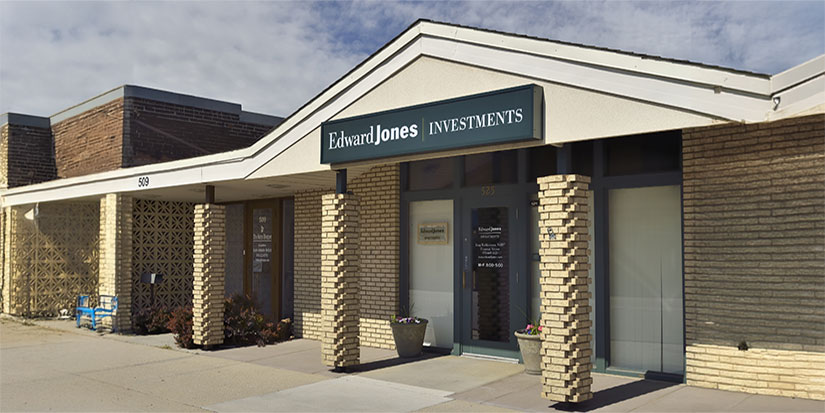
Edward Jones Is Better Than Vanguard
You may find this hard to believe, but Edward Jones does more good in the world than Vanguard.
What? You got that right, buddy.
I’m sure you’ve had this experience where you’re driving somewhere in some rural area, and you drive by an unfortunate fleabag strip mall with an Edward Jones office in it. I assure you that the financial advisor in that strip mall office doesn’t know his ass from a hole in the ground. What he does know is how to put people in mutual funds with front-end loads and tell people to hold on to them forever. That is his job. He doesn’t know about economics or option pricing or bond math or anything else. His only job is to put people in mutual funds (with high fees) and make sure they never sell.
As it turns out, you don’t need to pay someone a lot to do that. They do need to be able to put on a suit and press the flesh to get some assets, but beyond that, this is not a job that requires a lot of knowledge or financial sophistication.
And yet, in spite of all that, Edward Jones does more good in the world than Vanguard. A lot of people look at this and say, “Hey, Edward Jones has really high fees, and fees are bad for investors, so Edward Jones preys upon the unsophisticated when it could just go to Vanguard and assemble a portfolio for practically free.”
I wrote a Bloomberg piece on this years ago—high fees, such as front-end loads, and commissions, are actually good for investors. If you put $100,000 in a mutual fund with a 3% front-end load, you are paying $3,000 in fees, and if you pay $3,000 in fees, the only way this makes sense is if you amortize the fees over a long period. Also, the high fees keep people from actively trading their funds or, more to the point, panicking out of them in times of stress because they’d have to pay another 3% fee on the way back in.
Meanwhile, over at Vanguard, it is very, very common for people to be in and out of its funds, chopping themselves to bits and diminishing their returns. Vanguard knows this. Vanguard knows that people actively trade its mutual funds, and it knows that the average customer earns nowhere near the advertised returns on the funds. Vanguard came up with a concept known as “advisor alpha,” where with the addition of a financial advisor in your ear telling you not to sell your funds, people’s returns went up about 300 basis points.
This is a fact: People do better at Edward Jones with the dopey brokers and high fees than they do on their own at Vanguard.
Amazing.
Conclusions
We have an obsessive focus on fees, and it’s not good.
High fees are absolutely good for investors. Commission-free trading is the worst thing to happen to investors—ever. Do you think GameStop would have happened if people were paying $12 commissions? No. And retail investors lost billions on GameStop. Competitive forces got us here, but it hasn’t been a positive development.
When I was a wee lad, I always wondered why people would pay 3% to invest in a mutual fund when they could get one of similar quality for free. Now I know why. I personally have an account at a full-service broker. I pay exorbitantly high commissions. You don’t see me churning my own account, and my returns have been pretty good. I would be much worse off with a Robinhood account.
Speaking of Robinhood, well… let’s just say that nobody is being helped by Robinhood. This is the business model of an online brokerage: Customer deposits $10,000; over the course of a year or two, customer loses all the money and disappears; online brokerage now needs to find a new customer. The entire business of online brokerages is based on customer acquisition.
Hence, the E-Trade baby commercials. It constantly needs to acquire new customers to replace the ones that blew themselves up. It is actually the most depressing business in finance. People tend to overconsume free goods, and if trades are free, people will overconsume free trades.
Likewise, people will overconsume free mutual funds. Vanguard would never do this, but if it charged a small fee (like 0.1% of assets) to transfer funds from one fund to another, the returns of its clients would go way up.
Jack Bogle is thought of as a hero. In reality, he was a malignant altruist who created this metastasizing time bomb that distorts valuations and causes entire generations of investors to underperform their benchmarks and, in extreme cases, lose money in the context of an overall bull market.
I’ll take Edward Jones over Vanguard any day of the week.

Jared Dillian, MFA
|